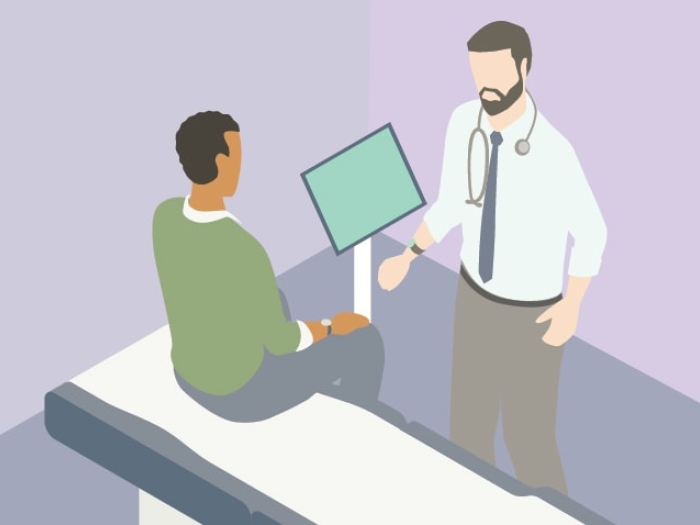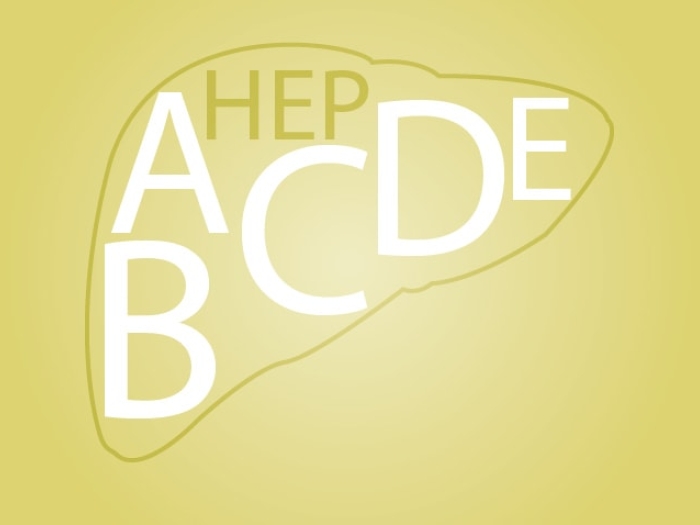You may not have symptoms, so talk to your primary care physician about your risk of liver conditions such as hepatitis C and fatty liver disease.
7:00 AM
Author |

The health of your liver is rarely top of mind, but it should be in a couple of cases, says Elliot Tapper, M.D., an assistant professor of gastroenterology and a liver specialist at the University of Michigan.
MORE FROM MICHIGAN: Sign up for our weekly newsletter
Specifically, there are two major reasons to test for liver disease.
One, if you are a baby boomer, born between 1945 to 1965, you'll need to head to your primary care doctor to have a simple liver function blood test.
"Baby boomers are at a high risk of having hepatitis C, which we could not screen or test until 1990," Tapper says. Left untreated, this curable virus can lead to liver damage, cirrhosis and liver cancer — and can even require a transplant, he adds.
In fact, baby boomers are five times more likely to have hepatitis C than other adults. They were born before blood was screened for infections and medical equipment safety protocol was adopted, according to the Centers for Disease Control and Prevention.
Because many live with the virus without symptoms, they don't know they are infected, so a blood test is critical for its detection and cure, Tapper says.
Another time a liver disease test is needed: If you have risk factors associated with nonalcoholic fatty liver disease (NAFLD). The most common type of liver disease in the United States, fatty liver disease strikes up to 30 percent of the population. Tapper says it will probably be the top reason for liver transplants in the future.
Some risks that lead to fatty liver disease and warrant testing include:
-
Obesity
-
High cholesterol
-
High triglycerides
-
Diabetes
-
Hypertension
-
Sleep apnea
-
Gout
Liver disease symptoms
You may feel fine, but the liver is quiet. "Despite the complexity of the liver, its vocabulary to communicate its distress is very limited," Tapper says.
SEE ALSO: What Causes Liver Disease? 5 Myths Dispelled
Begin by asking your primary care physician for a liver function blood test, such as the ALT and AST tests, which check for certain enzymes in the liver.
"These tests are part of a routine chemistry panel and is typically covered by insurance, so it's a great place to start," he says.
If the numbers are elevated, that indicates some damage to the liver. The primary care doctor can then use a clinical calculator to determine the severity.
If those calculations are low, it tells the doctor that while liver damage may be present, "you have a lot of time to work on the disease with your primary care doctor," Tapper says. "As long as you are committed to the nutritional and exercise advice, your liver is going to be healthy and happy."
If the score is high, however, it implies that you have developed scar tissue, which may lead to cirrhosis.
"Those are the patients we want to see at the clinic," he says, meaning it's time for a specialist.
Tapper cautions that the blood tests aren't necessarily conclusive. NAFLD patients, for example, often have normal enzymes despite having a serious liver disease, so that disease should be diagnosed with an ultrasound.
Risk factors aside, everyone should focus on what the liver loves and craves. That's a healthy diet, resistance exercise, weight loss and keeping diabetes under control if it's present.
"The liver is awesome," Tapper says. "We want to keep it healthy."
To make an appointment with Michigan Medicine's liver clinic, call 844-233-0433.

Explore a variety of healthcare news & stories by visiting the Health Lab home page for more articles.

Department of Communication at Michigan Medicine
Want top health & research news weekly? Sign up for Health Lab’s newsletters today!





